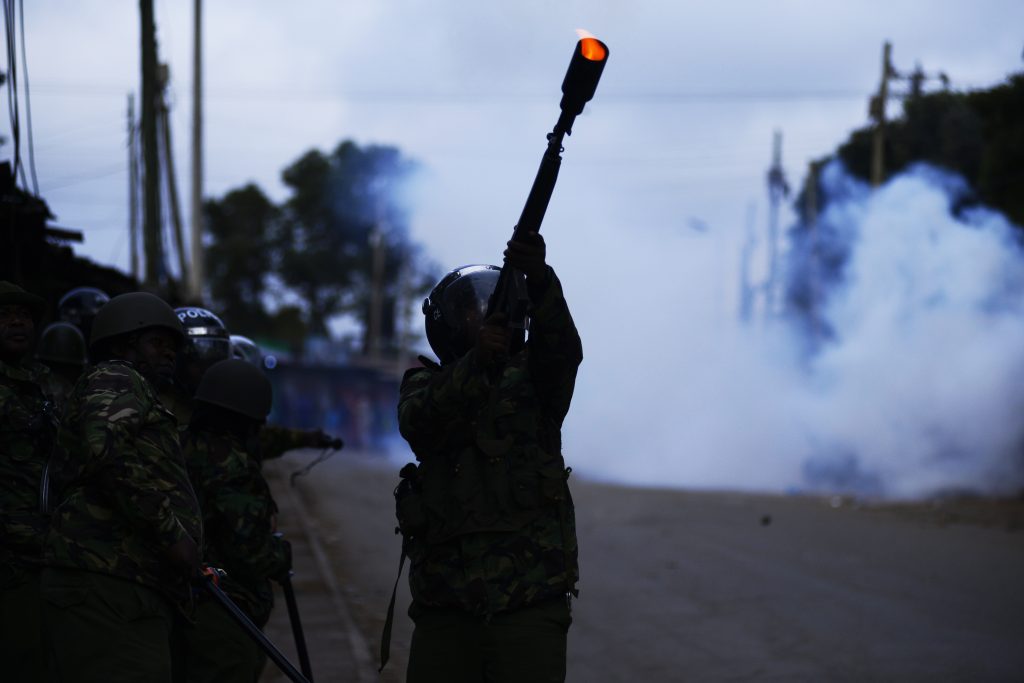
Kenyan police fired tear gas on opposition leader Raila Odinga’s convoy on Friday as people joined anti-government protests in several cities over a harsh cost-of-living crisis and a raft of controversial tax hikes.
Tear gas was fired on Odinga’s motorcade after he addressed a mass rally in the capital Nairobi, AFP correspondents said, and police took similar action to break up protests in the Indian Ocean port city of Mombasa and Kisumu, an opposition stronghold on Lake Victoria.
Police were out in force for the protests, the latest called by Odinga this year over the policies of the government of President William Ruto.
At the rally, Odinga — who lost the close-fought August 2022 election to Ruto — announced plans to collect 10 million signatures in a bid to remove his arch-rival from office.
“Kenyans elected leaders to parliament and they have betrayed them,” he said to cheers. “Ruto himself who took over power illegally has betrayed Kenyans.”
Odinga’s Azimio alliance had called for the protests over the impact of the new taxes on Kenyans already suffering economic hardship and soaring prices for basic necessities.
Last week, Ruto signed into law a finance bill which is expected to generate more than $2.1 billion for the government’s depleted coffers and help repair the heavily indebted economy.
The Finance Act provides for new taxes or increases on a range of basic goods such as fuel and food and mobile money transfers, as well as a controversial levy on all taxpaying Kenyans to fund a housing scheme.
– Court challenge –
Critics accuse Ruto of rowing back on promises made during his election campaign, when he declared himself the champion of impoverished Kenyans and pledged to improve their economic fortunes.
But the 56-year-old rags-to-riches businessman has defended the taxes, saying they will help create jobs and reduce public borrowing.
The high court in Nairobi last Friday suspended implementation of the legislation after a senator filed a case challenging its constitutional legality.
Despite the ruling, Kenya’s energy regulator later that day announced a hike in pump prices to take account of the doubling of VAT to 16 percent as stipulated in the law.
In Nairobi’s central business district, where main government buildings are located, police were patrolling on foot, in vehicles and on horseback, while several roads in the capital were closed.
“I hope this demo will make a difference,” Alex Dwisa, a 24-year-old manual worker, told AFP.
“The cost of living is too high, I don’t have 10k (10,000 Kenyan shillings/$70) to send my two kids to school.”
In Odinga’s bastion of Kisumu, a man in a vehicle mounted with a loudspeaker was mobilising residents to turn out.
“We must listen to Baba (as 78-year-old Odinga is known), he said we have to demonstrate today, come out and join us to liberate our country,” he said.
The protests have been dubbed “Saba Saba” (Seven Seven) as they are taking place on the seventh day of the seventh month, symbolising the day in 1990 that the opposition rose up to demand the return of multiparty democracy.
bur-txw/amu/kjm
© Agence France-Presse






